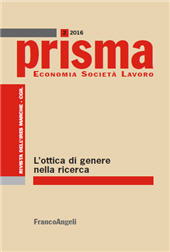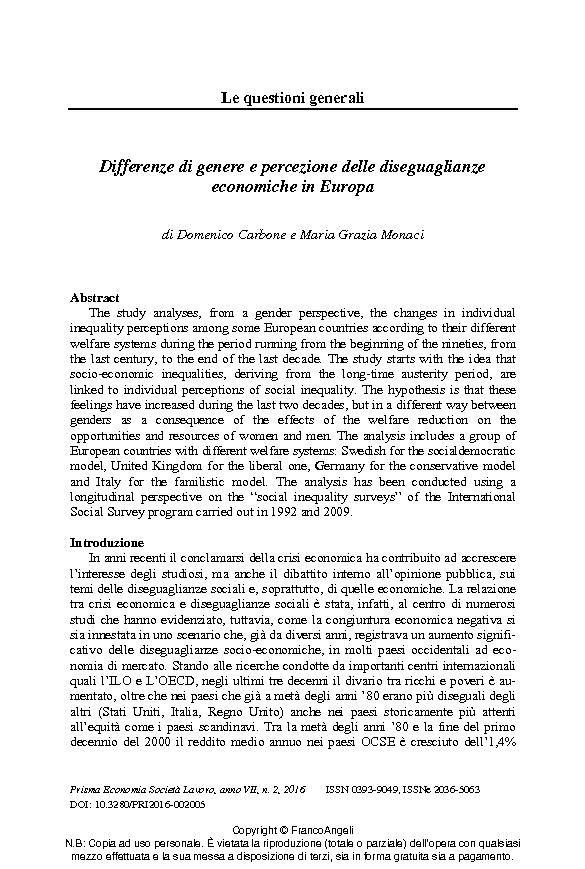2016 - Franco Angeli
Article
Digital Version
Download | Copy/paste | Printing
Differenze di genere e percezione delle diseguaglianze economiche in Europa
60-77 p.
- The study analyses, from a gender perspective, the changes in individual inequality perceptions among some European countries according to their different welfare systems during the period running from the beginning of the nineties, from the last century, to the end of the last decade. The study starts with the idea that socio-economic inequalities, deriving from the long-time austerity period, are linked to individual perceptions of social inequality. The hypothesis is that these feelings have increased during the last two decades, but in a different way between genders as a consequence of the effects of the welfare reduction on the opportunities and resources of women and men. The analysis includes a group of European countries with different welfare systems: Swedish for the socialdemocratic model, United Kingdom for the liberal one, Germany for the conservative model and Italy for the familistic model. The analysis has been conducted using a longitudinal perspective on the "social inequality surveys" of th
- e International Social Survey program carried out in 1992 and 2009. [Publishers' text].
Is part of
Prisma : economia, società, lavoro : 2, 2016-
Information
ISSN: 2036-5063
-
In this issue
- Editoriale : a partire dal genere
- Donne nelle forze armate â¦
- ⦠E uomini a casa
- La legge italiana sulle unioni civili : riconoscimenti e rischio discriminazioni
- Differenze di genere e percezione delle diseguaglianze economiche in Europa
- Bulle e pupe : Il genere del bullismo digitale
- Più equità, più benessere : un confronto Italia-Marche
- Etica della cura e malattie croniche di adulti e bambini : due casi studio nelle Marche
- Donne nello spazio urbano
- Consultori familiari e politiche di austerity nelle Marche
- Stereotipi a scuola : gli adolescenti tra famiglia, lavoro e pari opportunità
- Genere : un'imprescindibile categoria di analisi
- Spazio e società : dal dualismo spaziale sacro-profano al cosmo desacralizzato delle metropoli moderne
- Merci Patron! di François Ruffin
- Autrici e autori



